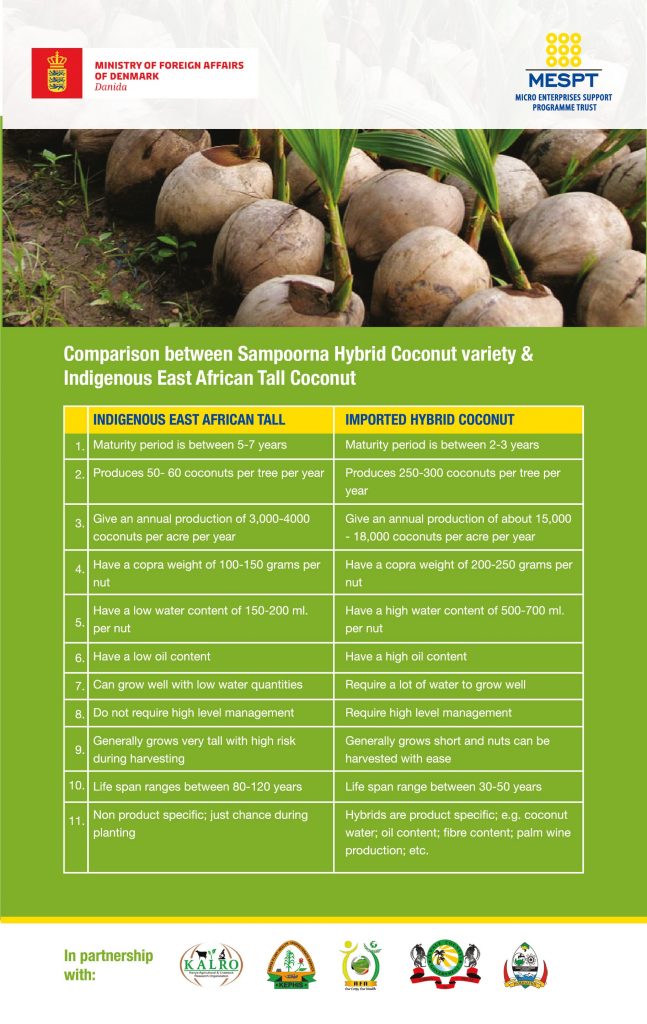Overview
Kenya’s coconut sub-sector supports over 100,000 households in the coastal region. It contributes an estimated 1.5% to the agricultural GDP and 0.4% of Kenya’s GDP. The sub-sector supports several actors but has a lot of untapped potential. In a value chain study conducted in 2013, the value of the sub-sector was estimated at KES 12 billion (based on farm gate prices). The sub-sector has potential to generate over KES 25 billion annually with better production practices and enhanced value addition.
For many decades in Kenya, there has been only one nut variety of commercial value, i.e. the East African tall that is known to produce multi-purpose nuts. There are also a few dwarf varieties mainly used for coconut water. The 2 varieties however do not by any means match other competing varieties in countries where the coconut industry is well advanced. The main challenges faced by coconut farmers are mainly at production level, which include lack of accessibility of quality planting material and the menace of pests and diseases. Effects of the prolonged drought conditions are also prevalent coupled with dwindling efforts in establishment of new orchards. The East African tall coconuts are less competitive and profitable because of the 5-7 years they take to starts flowering and fruiting, yields stand at 3,000 – 4,000 coconuts per acre per year, copra content only weighs of 100-150 grams per nut, coconut water content is low at 150 – 200ml per nut. Furthermore, the East African tall variety is a general-purpose tree that is not specific to either oil; water or fibre content.
Whereas the coconut sub sector is faced with numerous challenges including limited research and development, the underlying pitfall revolves around the traditional uncompetitive varieties promoted for years. From a development perspective, MESPT and partners decided to seek a coconut variety that is more tolerant, early maturing and high yielding.
The intervention
In 2012, through a strategic stakeholder’s approach, MESPT started the pursuit to bring commercially viable and best varieties of hybrid coconut to revolutionize the coconut industry in Kenya. A delegation of Coconut Value Chain stakeholders was supported by MESPT/DANIDA to attend the 45th APCC COCOTECH Conference from 2nd -6th July 2012 Kochi, Kerala, India. It is at this conference they identified a multi-purpose hybrid coconut (Sampoorna variety) that matures within 2 ½ years and produces ten times the number of nuts per tree per year compared to the Kenyan East African Tall coconut.
Upon return to Kenya, the team set a roadmap that would put Kenya on course to importing the hybrid coconut variety for small holder farmers in Kenya. However, there were no bilateral trade relations between India and Kenya that time. The implementation plan took many years to be realized but on 13th November 2017, the 1st consignment of 6,000 coconut seed nut from India finally docked at the port of Mombasa.

Project Key Partners
